 Of the plenteous perks of publishing a birding blog, and rest assured, they are manifold, one of the best has to be the free stuff. I am, on occasion, granted the opportunity to review bird-related books or videos. Though this can sometimes, depending on the item, be a chore, more often than not, I get my hands on some exceptional work. Such is indubitably the case with my most recent read, How To Be A (Bad) Birdwatcher by Simon Barnes.
Of the plenteous perks of publishing a birding blog, and rest assured, they are manifold, one of the best has to be the free stuff. I am, on occasion, granted the opportunity to review bird-related books or videos. Though this can sometimes, depending on the item, be a chore, more often than not, I get my hands on some exceptional work. Such is indubitably the case with my most recent read, How To Be A (Bad) Birdwatcher by Simon Barnes.
Simon Barnes is the Chief Sports Writer for the Times (of London, not New York) but in this, his most recent book, he reveals his deep devotion to something nearer to my heart than cricket. He is a passionate, persuasive birdwatcher, one so in love with avifauna that he wants to share his great joy with others. Like a sinner who’s been Born Again, Barnes proselytizes fervently in an effort to lead the rest of us to heaven. His version of paradise, however, is right here on Earth. To find it, all one need do, he says, is look up.
Simon Barnes is a phenomenal wordsmith. That he makes his living as a writer is patently obvious, and I’d wager it’s a rather good living at that. How To Be A (Bad) Birdwatcher is an easy, breezy read, a fast 220 pages. However, every single page is rich with lyricism, reason, and, above all, charm. His is that style of writing that seems effortless but in fact stems from a long commitment to the craft. Yet, as nakedly impressive as the presentation may be, what really stands out is his premise.
The assertion of How To Be A (Bad) Birdwatcher is a simple one. Barnes believes that birds hold a latent fascination over all of us and that, deep down, each one of us is a born birdwatcher. His book is designed to gently draw out one’s inner birder, to coax out of hiding that essential affinity for the natural world. The process is not only painless, but pleasurable. Barnes begins by demonstrating the power of just looking. This, after all, is what makes a birdwatcher: that unforced, ingrained openness of eye, ear, and mind. He explores the reasons why birds are so much more popular as objects of observation than, say, mollusks or mammals. Though he celebrates biodiversity, he does refrain from pushing prospective birdwatchers into the deep end of the pool. Instead, he walks would-be birders step by step from the feeder to the field guide, from optics to auditory identification, from the easy marks to the little brown jobs. He reviews the importance of place, of time, and of fellow enthusiasts. And through it all is an exultation, a sheer delight in growing more and more attuned to the living, breathing world. Were I not already bitten by the bug years ago, I’d be a convert now.
This book certainly isn’t for the uninitiated alone. Barnes has impeccable credentials as a birder. More important, he’s clearly contemplated the innumerable ways his enthusiasm has enriched his life. We can all learn from his experience. He does, I should point out, have a few unflattering, though not exactly unkind words regarding twitchers. Rather than dive into what he says about collectors and competition, I’ll just mention that while reading this book, I noticed a welcome moderation in my mad fervor for new birds. Basically, I relaxed. How To Be A (Bad) Birdwatcher provided me with a new, saner perspective on birding, one that only enhances the pleasure I derive from keeping my eyes and ears open.
Barnes does try to make a distinction between good and bad birdwatchers, the latter being those who enjoy birds without any pretension of expertise. I suspect that this paradigm is meant to mitigate beginner’s nerves. By placing a greater value on initial interest over accuracy, Barnes proactively provides much-needed solace to those on the scary side of a steep learning curve. Basically, bad birdwatchers can have fun too.
Simon Barnes, good or bad, but never indifferent, comes across as the best kind of birder, one whose reverence for and joy in nature’s myriad delights are contagious. How To Be A (Bad) Birdwatcher is an amazing, thoroughly enjoyable book, ideal for absolutely anyone on the birding continuum from the best to the worst.



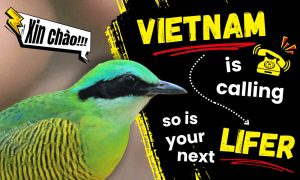



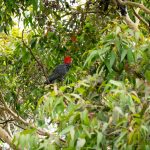
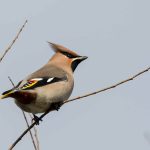
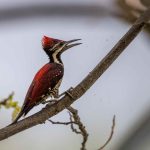


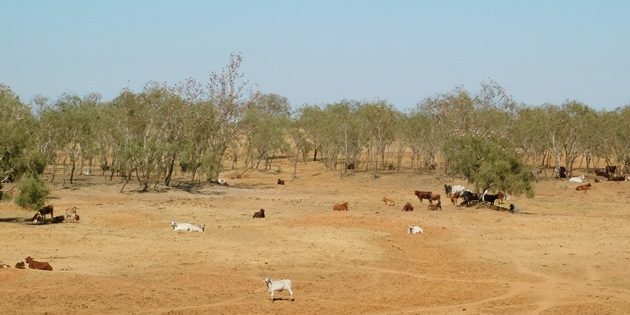
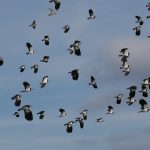
I WILL BE A BIRDS WATCHER
HOW TO APPLY BIRDS COUNT